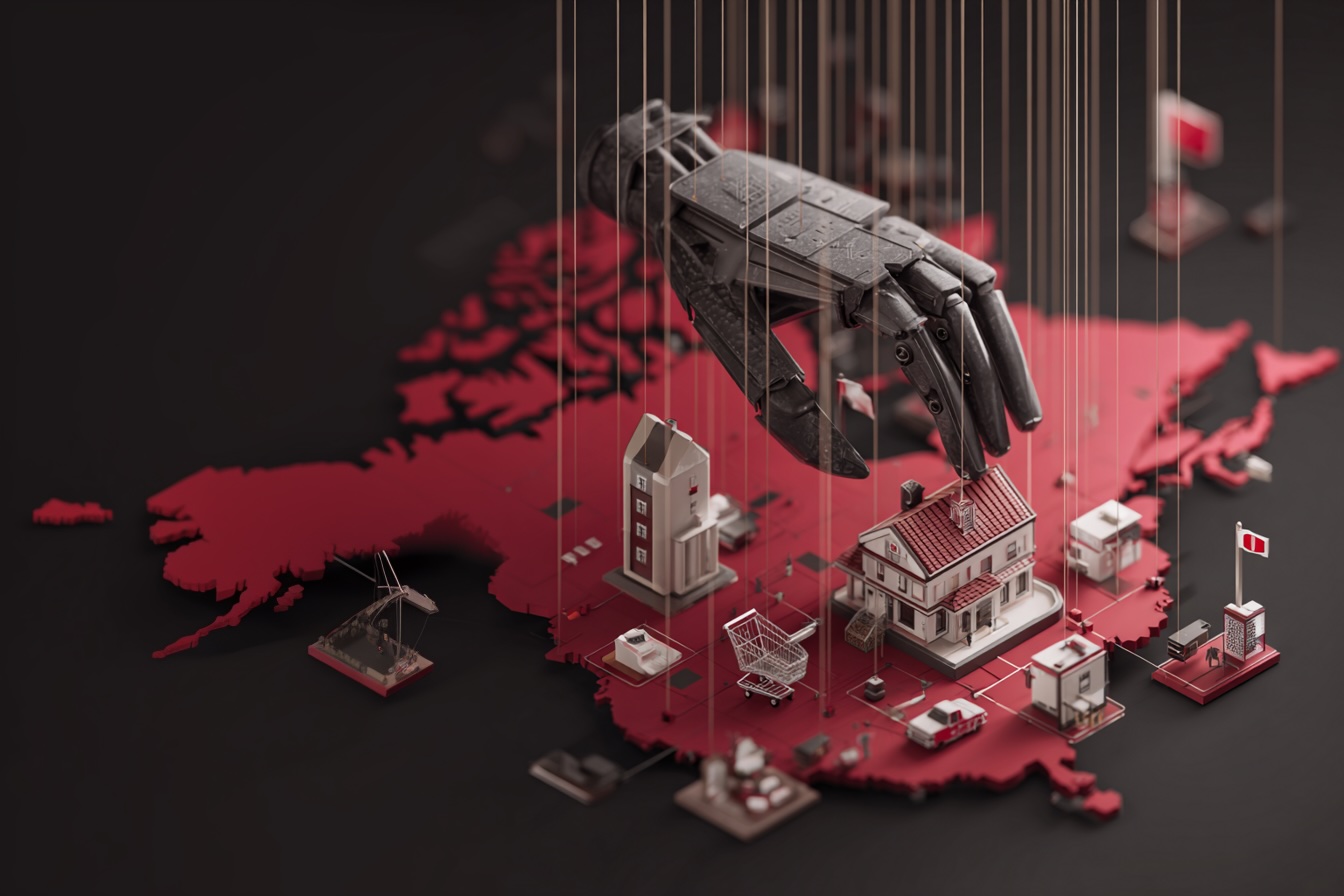Why Is Canada So Expensive? The 11 Companies Behind High Prices

Why Is Canada So Expensive? The Companies Behind Rising Costs
Canadians often wonder: Why does everything cost so much here? From groceries to gas to cell phone bills, prices feel higher than ever. While global trends play a role, much of Canada’s affordability crisis comes down to something simpler—a handful of powerful companies controlling essential goods and services.
Here’s a breakdown of the industries and corporations driving up the cost of living in Canada.
Oil and Gas: Profits Up, Prices Stay High
Suncor Energy recently cut its operating costs by $7 per barrel, saving an estimated $1.2 billion annually. It achieved this with automation, including Boston Dynamics “Spot” robots inspecting pipelines. Yet gas prices remained around 160 cents per litre in 2024. Why? Because Canada is car-dependent, oil companies don’t need to pass savings on to consumers. Instead, they’ve kept margins high, rewarded shareholders, and maintained dividends.
“The prices aren’t going down because they don’t have to.”
The ripple effects extend beyond the pump: Canadian airlines reported a 62% fuel price surge since 2019, which gets passed directly to ticket prices. Even household items like toilet paper have climbed due to higher pulp, packaging, and freight costs.
Groceries: Loblaw and the Food Monopoly
Between April 2021 and April 2024, food prices in Canada surged 21%. During that same period, Loblaw’s profits soared to $2.1 billion in 2023—about $5.5 million per day. Their CEO, Per Bank, famously said Canadians could “choose to shop elsewhere tomorrow.” But with 90% of Canadians living within 10 km of a Loblaw-owned store, options are limited.
Even within the same corporate family, prices vary:
- Baby formula: $69.97 at Walmart vs. $76.99 at Shoppers Drug Mart
- Tums: $10.48 at Walmart vs. $15.99 at Shoppers
It wasn’t until a 2024 boycott that Shoppers announced price cuts on 400+ items, proving that consumer pressure can force change.
Telecom: Paying More Because They Can
Canada’s telecom market is dominated by Rogers, Bell, and Telus, which together control 85.6% of revenues. Instead of lowering prices after 5G investments, carriers added clauses allowing mid-contract price hikes. Customers report bills rising even before service starts.
Bell’s CFO admitted in Parliament that if spectrum prices matched the global average, “every Canadian’s wireless bill would be $5 per month lower.”
Translation: “We’re charging you more because we can.”
Despite geography being used as an excuse, 90% of Canadians live within 160 km of the U.S. border, meaning dense areas could support cheaper service. Countries with similar geography—like Norway or Finland—manage faster speeds at lower costs.
Banking: Interest Rate Windfalls
Canada’s big banks are also beneficiaries of affordability pressure. In late 2024, RBC posted $4.2 billion in quarterly profits, up from $3.9B the year before. This profit came largely from interest rate spreads: paying depositors very little while charging borrowers much more. It’s one of the clearest examples of “making money out of thin air.”
Real Estate: Rent as a Profit Strategy
Housing costs are where Canadians feel the squeeze most.
Starlight Investments, which owns 70,000+ rental units, has faced investigations for Above-Guideline Rent Increases without justification. The company’s CEO openly stated: “The money and returns are made in the suites when the suites turn over.” This means they profit from tenant displacement—forcing turnover to justify higher rents. Similar tactics are used by Timbercreek and Brookfield Properties. In fact, rising rents accounted for nearly half of Canada’s headline inflation, making housing the single largest driver of cost-of-living increases.
Why Isn’t the Government Stepping In?
Other countries intervene aggressively in essential markets:
- France directly regulates grocery prices.
- The UK enforces strict telecom competition rules.
- Nordic countries invest in affordable, high-speed internet.
In Canada, political will has been weak. Grocers and telecoms lobby heavily and hire former government insiders, reducing the appetite for structural reform.
The Human Cost
- Nearly 50% of Canadians say they can’t keep up with daily expenses.
- One-third describe most days as financially stressful.
- 1 in 5 families expect to need food assistance in the next six months.
Meanwhile, corporate profits are at record highs across energy, groceries, telecom, banking, and housing.
What Can Be Done?
Change won’t come overnight, but Canadians do have leverage:
- Support tenant protections: Rent control and anti-displacement rules are provincial responsibilities.
- Shop strategically: Target high-margin products in boycotts (prepared foods, pharmacy items).
- Switch to alternatives: Use credit unions, regional grocers, and municipal broadband where available.
- Demand transparency: Push Parliament to force disclosure of profit margins in essential sectors.
- Join advocacy groups: Collective action has already pressured Shoppers and Loblaw to back down on prices.
Final Thoughts
The companies behind Canada’s affordability crisis aren’t “evil.” They’re doing what rational businesses do: maximizing profits.The real problem is that Canada’s market structure rewards shareholder gains at the expense of consumers, and successive governments have done little to stop it.
“This isn’t market failure—it’s market design.”
Until structural reforms arrive, Canadians will keep paying some of the highest prices in the developed world for the basics of daily life.






